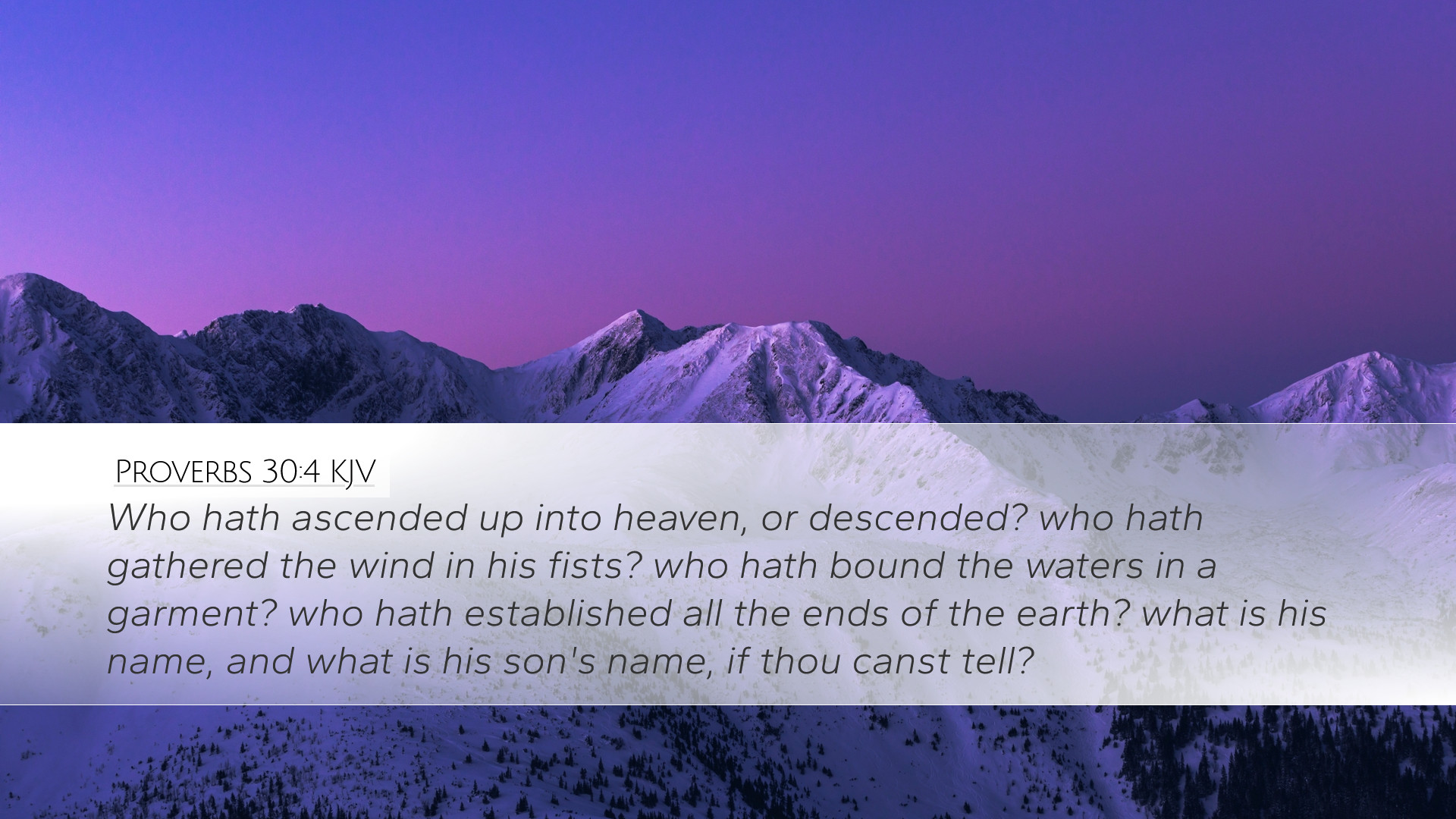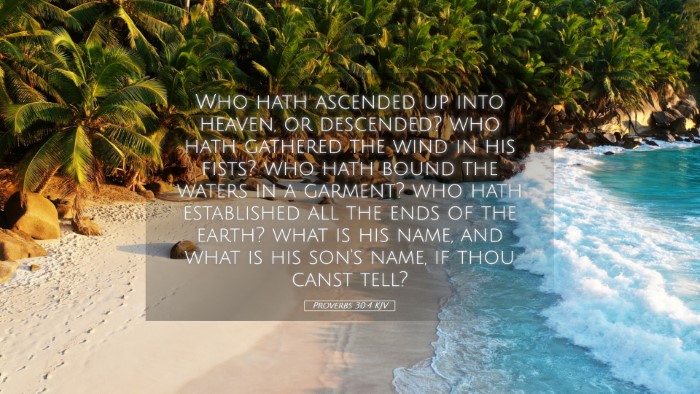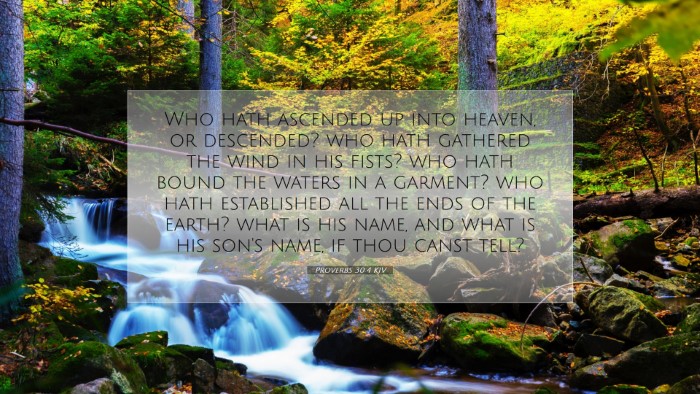Insights from Public Domain Commentaries
Matthew Henry's Commentary
According to Matthew Henry, this verse captures the awe-inspiring majesty of God, emphasizing His omnipotence and omniscience. Henry remarks that the questions posed serve to reflect on the divine mysteries that are beyond human understanding. He emphasizes that only God possesses the power to manipulate natural laws — He can ascend into heaven or descend, gather the wind, and bind the waters.
Furthermore, Henry indicates that the profound question concerning God's name and His Son's name points towards the reality of divine revelation. It implies a yearning for understanding the identity of God and His relationship with humanity through His Son. This introspection encourages the reader to recognize the insufficiency of human wisdom in comprehending divine matters.
Albert Barnes' Notes on the Bible
Albert Barnes addresses the rhetorical nature of the questions in this verse, suggesting that they are designed to provoke contemplation about the Creator's incomprehensible nature. Barnes notes that these inquiries emphasize that no one, aside from God Himself, can claim to understand His workings or fully grasp His essence.
Barnes further articulates that this verse implies a clear distinction between God and humanity. The repeated “who” serves to remind readers of their limitations and the futility of human efforts to attain divine knowledge. By questioning “What is his name, and what is his son’s name?”, Barnes interprets this as an acknowledgment that God's nature is beyond descriptive human labels, further insinuating the future revelation of Christ as a key to understanding divine relations.
Adam Clarke's Commentary
Adam Clarke elaborates on the thematic significance by expounding on the metaphorical language used to describe God’s actions within creation. Clarke underscores that “gathering the wind” and “binding the waters” symbolize control over the elements — an authority that belongs uniquely to God. He connects this verse to the various attributes of God, highlighting His omnipotence, omnipresence, and omniscience.
Clarke also emphasizes the theological implications of the inquiries, particularly concerning the identity of God's Son. He posits that this could be a foreshadowing of the coming Messiah, indicating a rich, prophetic layer to the verse. Clarke's commentary invites readers to reflect on the role of Christ in unveiling the nature of God and His purposes in the world.
Applications for Pastors and Theologians
This verse offers profound implications not only for personal reflection but also for teaching within congregational settings. Here are a few applications:
-
Encouragement for Humility: The questions in this verse urge believers to embrace a posture of humility as they confront the vastness of God. Pastors can use this passage to remind their congregations of the limitations of human wisdom and the necessity of reliance on divine revelation.
-
Emphasis on God's Sovereignty: The portrayal of God's power over creation serves as a vital reminder of His sovereignty. Theologians can explore the implications of divine omnipotence in discussions on sovereignty, providence, and the nature of faith.
-
Christological Reflection: The mention of God's name and His Son invites rich dialogue on Christology. Pastors can delve into how this verse prefigures the full revelation of God through Jesus Christ, encouraging deeper study into the relationship between the Old and New Testaments.
-
Worship and Praise: The majesty of God encapsulated in this verse serves as an impetus for worship. Congregational leaders can inspire praise and reverence in their communities through meditation on God's greatness as revealed in this wisdom literature.
Conclusion
Proverbs 30:4 is a profound reminder of the mystery and majesty of God. The insights drawn from the commentaries of Matthew Henry, Albert Barnes, and Adam Clarke help us to appreciate the depth of this verse. This scripture not only encourages a deep reverence for God's omnipotence but also invites theological exploration into His relationship with humanity, ultimately pointing to the revelation of Christ. For pastors, scholars, theologians, and students, engaging with this verse can lead to a richer understanding of both the divine nature of God and the role of humanity within His grand design.


